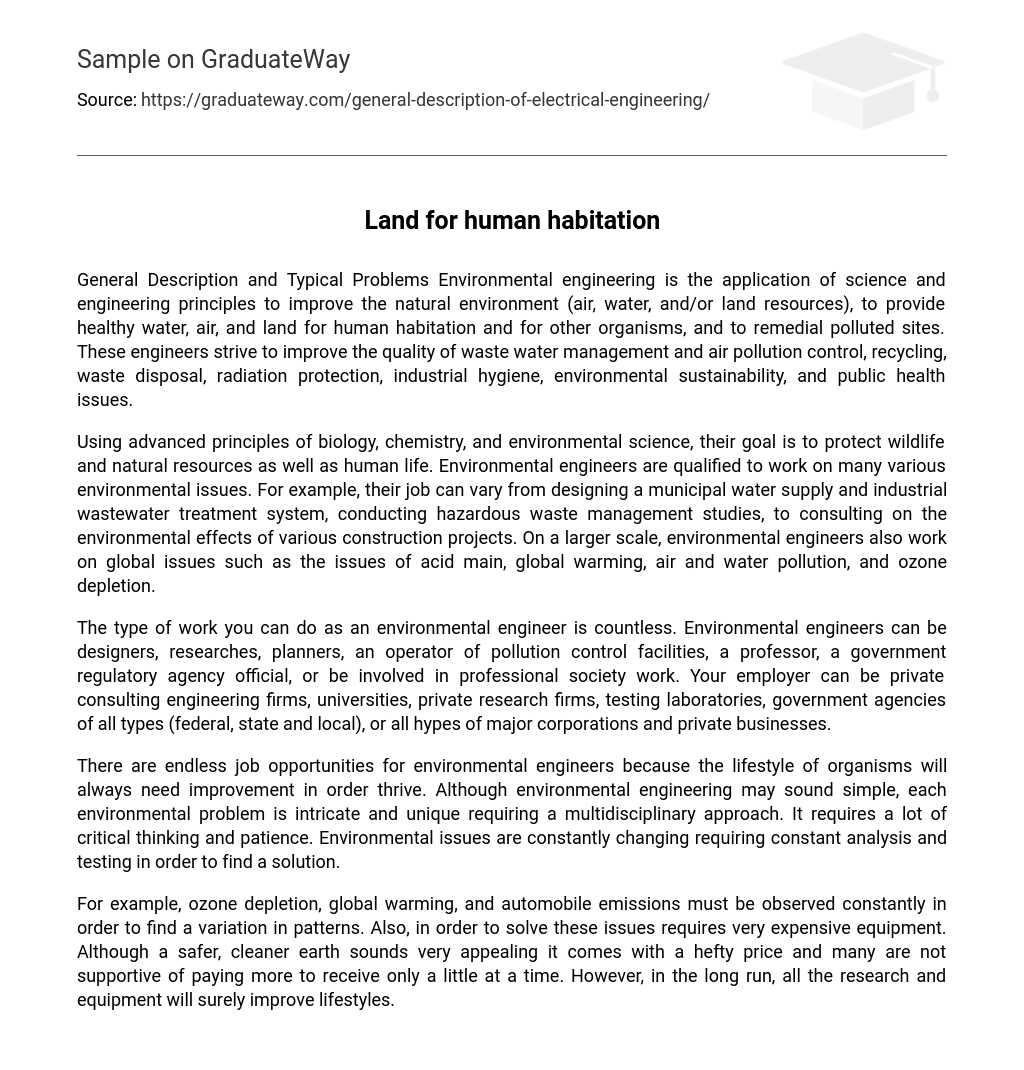General Description and Typical Problems Environmental engineering is the application of science and engineering principles to improve the natural environment (air, water, and/or land resources), to provide healthy water, air, and land for human habitation and for other organisms, and to remedial polluted sites. These engineers strive to improve the quality of waste water management and air pollution control, recycling, waste disposal, radiation protection, industrial hygiene, environmental sustainability, and public health issues.
Using advanced principles of biology, chemistry, and environmental science, their goal is to protect wildlife and natural resources as well as human life. Environmental engineers are qualified to work on many various environmental issues. For example, their job can vary from designing a municipal water supply and industrial wastewater treatment system, conducting hazardous waste management studies, to consulting on the environmental effects of various construction projects. On a larger scale, environmental engineers also work on global issues such as the issues of acid main, global warming, air and water pollution, and ozone depletion.
The type of work you can do as an environmental engineer is countless. Environmental engineers can be designers, researches, planners, an operator of pollution control facilities, a professor, a government regulatory agency official, or be involved in professional society work. Your employer can be private consulting engineering firms, universities, private research firms, testing laboratories, government agencies of all types (federal, state and local), or all hypes of major corporations and private businesses.
There are endless job opportunities for environmental engineers because the lifestyle of organisms will always need improvement in order thrive. Although environmental engineering may sound simple, each environmental problem is intricate and unique requiring a multidisciplinary approach. It requires a lot of critical thinking and patience. Environmental issues are constantly changing requiring constant analysis and testing in order to find a solution.
For example, ozone depletion, global warming, and automobile emissions must be observed constantly in order to find a variation in patterns. Also, in order to solve these issues requires very expensive equipment. Although a safer, cleaner earth sounds very appealing it comes with a hefty price and many are not supportive of paying more to receive only a little at a time. However, in the long run, all the research and equipment will surely improve lifestyles.





